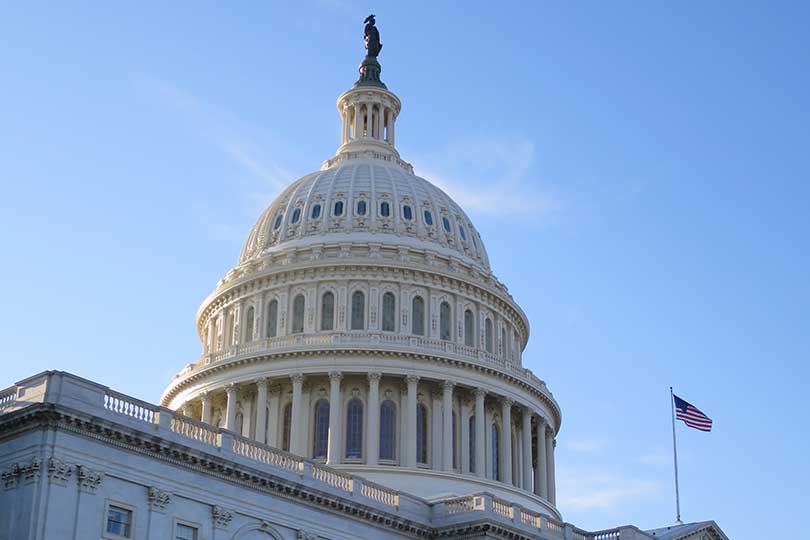By Jessica Domel
Multimedia Editor
The final details of Congressional Republicans’ tax reform plan were released to the public Friday afternoon.
The $1.3 trillion, 1,000-plus-page legislation includes parts of both the House and Senate passed plans and is expected to be taken up by the House for consideration Tuesday.
The plan doubles the estate tax exemption, but does not repeal it as the House tax plan originally called for.
It calls for the corporate tax rate to be reduced to 21 percent from the current 35 percent rate on Jan. 1.
“Our competitors keep lowering their tax rates, and U.S. companies keep fleeing America and moving to where there are lower tax rates and taking jobs with them,” Sen. Ted Cruz told the Texas Farm Bureau (TFB) Radio Network at TFB’s annual meeting.
The bill creates a 20 percent deduction for pass-through businesses for the first $315,000 of qualified income.
“Some farms and ranchers are organized as corporations. For those that are organized as corporations, it’s a dramatic cut,” Cruz said. “For those organized as pass-throughs, this legislation also has a dramatic cut in taxes so that every small business in America sees a lower effective tax rate so that you can use the taxes to grow your farm, to grow your ranch, to grow your business and to devote that capital instead of paying Uncle Sam.”
After that threshold is met, an effective marginal tax rate of 29.6 percent or lower is applied.
“This bill takes the highest corporate tax rate in the developed world and it cuts it down to 20 percent, designed to bring those companies back to America, to bring those jobs back to America and to bring those headquarters back to America,” Cruz said. “Combined with it, it moves to what’s called a territorial system, which means businesses aren’t double taxed. U.S. corporations have roughly $2.9 trillion in capital overseas that they won’t bring back because it’s subject to double taxation.”
The new plan also includes a repeal of the corporate alternative tax and the ability for businesses to immediately write-off the full value of equipment for five years.
“If you buy a new tractor, if you invest in new equipment, instead of expensing that over a period of years, you can expense it overnight,” Cruz said. “That’s designed to lower your costs, to impact the bottom line and let you invest more in growing your farm or ranch.”
According to the text of the bill, it gradually eliminates the 100 percent expensing after five years.
The new tax brackets for married couples filing jointly are as follows:
10 percent up to $19,050
12 percent up to $77,400
22 percent up to $165,000
24 percent up to $315,000
32 percent up to $400,000
35 percent up to $600,000
37 percent over $600,000
The new tax brackets for unmarried individuals and couples filing jointly are as follows:
10 percent up to $9,525
12 percent up to $38,700
22 percent up to $82,500
24 percent up to $157,500
32 percent up to $200,000
35 percent up to $500,000
37 percent over $500,000.
“We’ve lowered rates,” Senator John Cornyn said. “The child tax credit has been doubled, and the standard deduction has been doubled. Companies are incentivized to invest and relocate to the United States rather than take their operations, investments and jobs overseas.”
The brackets expire after 2025.
The $4,050 personal exemption would end under the new plan.
The proposal calls for a cap on the mortgage interest deduction at $750,000 in home loan value. The current cap is $1 million.
The new cap would remain in effect until the end of 2025 when the cap would return to $1 million.
According to The Hill, the deductions for medical expenses, student loan interest and the exclusion for graduate students’ tuition loan waivers would remain, as would the Alternative Minimum Tax.
The mandate that requires taxpayers to have health insurance, passed under the Obama Administration, would be cut.
Cruz said the $338 billion the government will save by cutting that will be used to double the child tax credit to $2,000 per child.
“If you’re a young family, you’re raising your kids, that’s real money in your pocket for working Americans,” Cruz

